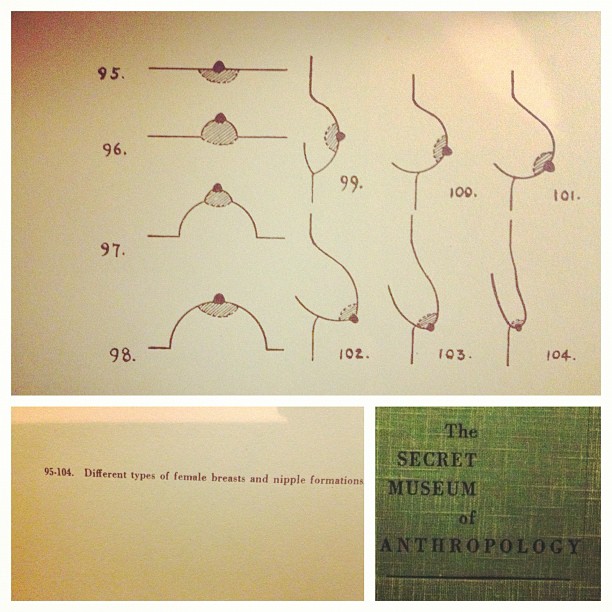
I have a book. It has been in my possession for a few weeks now. It is called The Secret Museum of Anthropology. It was a private printing from the American Anthropological Association created in 1935 from a series of pirated photos. It included illustrations as well, to make it more science-y I am guessing. The photo above is the cover, the copy, and the drawing that I’ve been intrigued by since receiving the book. I… like it? No. Yes? It is provocative. That is a better word I think.
So, today, since I woke up an hour early due to daylight savings time, I decided to finally work through the illustration and the book by drawing, photographing, printing, cutting, and pasting. The result is a triptych (three 16x20inch panels) of the book and the breasts featured in the book. I did this because my way of working through problems is to play with them/tear them apart, recreate them, meditate on them, and then figure out what the hell is going on in my head around it (Yay to weird methodological approaches!).

[those are some crooked photos!] I think I might keep it in this order. I think what was so intriguing to me about the photograph is the ability to reduce even breasts to types, when, if you actually put the illustration next to the breasts in the book, it… doesn’t work. The reduction is actually, hilarious. And the actual breasts in the book are overwhelming. So, that is where I am. The problem is, and will always be, the reduction of women of color from specific groups being reduced to a squiggly line, a line that can be erased and erases at the same time.
I need to finish cleaning up the drawings. I am debating adding the numbers. I will be sharing the triptych with a class in 1.5 weeks, so I need to get everything finalized. I think I’m almost there.
